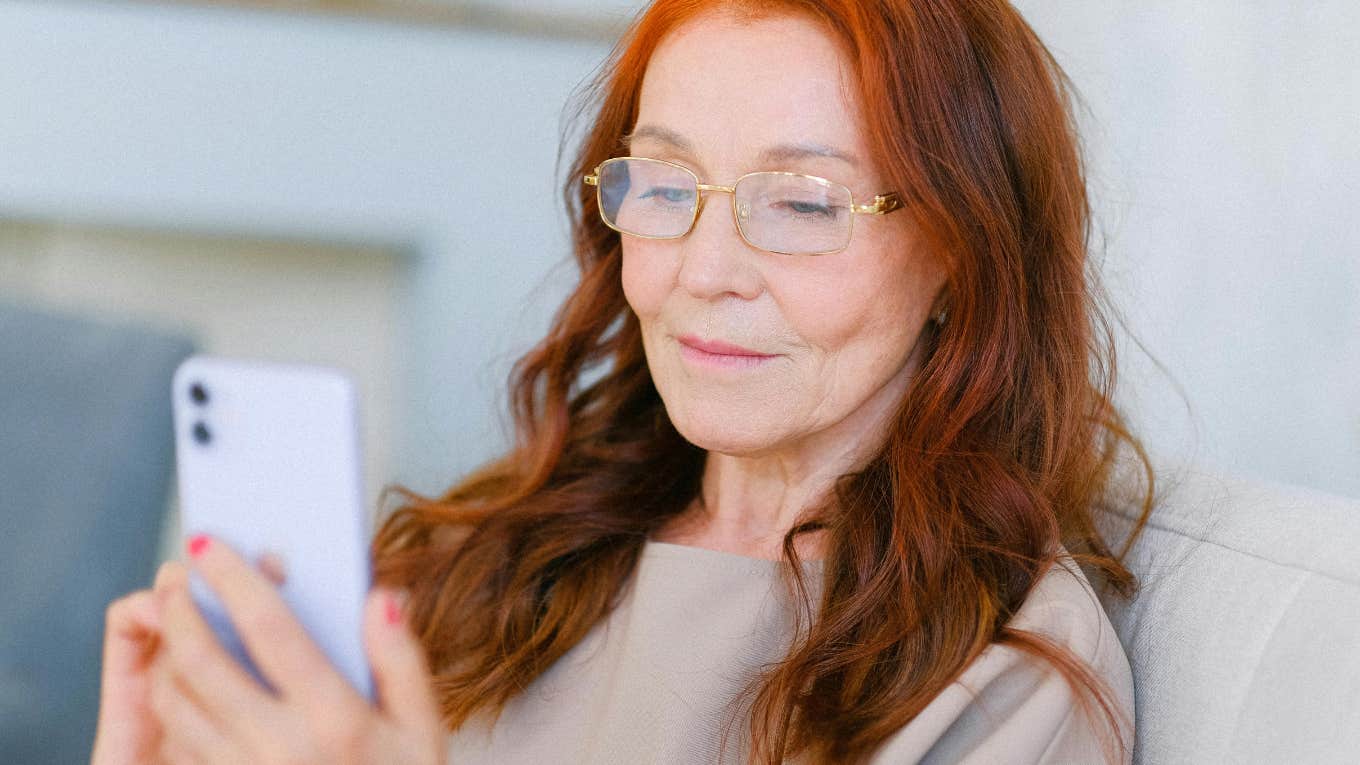Study Shows The Majority Of People Trust AI For Advice More Than Their Own Best Friend
Would you trust technology over a person?
 Anna Shvets | Pexels
Anna Shvets | Pexels How often do you turn to artificial intelligence for help? Maybe you only use it for everyday tasks, or maybe you rely on it to dictate your life decisions. Think all that talk of people pretty much relying on ChatGPT for every decision is exaggerated? Hate to burst your bubble, but new research is saying the exact opposite. In fact, people are using it so much and trusting it so much that they are choosing AI over their closest friends and family for advice.
A revealing study found that the majority of people would rather turn to AI for advice than ask their own friends.
Recent research published by AI-powered personal helper Wingmate evaluated the role of AI in our love lives, and how much of the work it's really doing for us. Out of over 1,000 study participants, 57% said they would trust AI for dating advice more than their friends and family. This could come from a place of embarrassment or fear of judgment from people you know, or simply from the belief that AI can provide non-biased and logical advice.
 Prostock-studio | Shutterstock
Prostock-studio | Shutterstock
In particular, the results showed that men are more likely to trust AI over friends. Fifty-eight percent of male participants said they use AI for dating-related tasks, compared to only 42% of women. The ever-present stigma surrounding men showing emotions may have them preferring to keep their questions low-key and anonymous by using AI.
Basically, this "trust" seems to actually stem from a fear of vulnerability, more so than the actual belief that ChatGPT can offer answers your friends and family can't.
There are many ways that people are using AI to improve their dating experiences.
Okay, so asking ChatGPT for flirting tips or what to wear on a date is innocuous enough, but the research found that's not all users need help with. Assistance with communication is a big one. Here's where things start to feel a lot more like the movie "Her." Fifty-one percent admitted to using AI to come up with conversation starters, 45% have used it to brainstorm message replies, and 38% use it to analyze a tense situation or conflict. It can even fact-check, proofread, and edit messages to a potential partner.
AI can also spruce up your dating app profile. Participants have used it to write or improve their dating bios (62%) and enhance profile pictures (42%). You'll never struggle to come up with attention-grabbing opening lines or clever bios again. But doesn't this all feel like catfishing in disguise? If your photo is AI-enhanced and you aren't even writing your own bio, who are your matches actually dating?
If you feel ready to end a relationship, AI can help with that, too. Twenty-seven percent admitted to using AI to help with initiating or planning a breakup, likely to avoid the emotional discomfort that comes along with it. Additionally, 43% said they used it to write apologies or closure messages, though I can't say I believe an AI-written apology would do much to mend a broken heart.
Study participants were mostly optimistic about the effect that AI has had on their romantic lives.
If you thought navigating dating apps was hard before, reading through AI-generated content might make distinguishing your dates from each other even more difficult. Around half reported major benefits, with 54% claiming their conversations improved and 50% feeling more confident in romantic scenarios. Thirty-five percent even said they got more matches on dating apps. But what happens when you have to have an actual conversation without AI help? What happens when your date sees what you look like without AI changing your images?
 Masson | Shutterstock
Masson | Shutterstock
Over a quarter of participants said they felt dating overall became "simpler" (29%), and 20% had an easier time chatting with more people. These results show that people struggle the most with the slightly awkward initial communication with a date and making themselves marketable on the dating scene.
However, not everyone saw the appeal of using AI for dating. 18% said they didn't notice any real difference, and 13% said they felt AI actually made things worse. They mentioned things like questions about morality, feelings of artificiality, and a disconnect from themselves.
You know that uneasy feeling you're experiencing just thinking about the fact that all your interactions are now influenced by ChatGPT? Well, you're not alone. And it's a real concern because AI isn't going anywhere. Eugenia Rho, Assistant Professor of Computer Science at Virginia Tech, said it best: “One of the deeper concerns surrounding LLMs in human-AI interaction is the potential erosion of genuine human connection. As we begin to converse more often with AI, naturally, there is a question over the authenticity of our interactions. Will we, over time, prefer the consistent and tailored responses from an LLM over the unpredictable, messy, spontaneous, but genuine nature of human conversation? Moreover, there is the ethical concern of AI being used to manipulate or deceive, given its ability to generate convincing narratives."
When it comes right down to it, you should absolutely use AI as a tool to make your life easier, but you should not use it as a replacement for who you are and the people in your life who matter. Be yourself. Feel the feelings, and connect with the people you love and who care about you. It might be hard to break the AI habit, but you'll be better for it.
Kayla Asbach is a writer currently working on her bachelor's degree at the University of Central Florida. She covers relationships, psychology, self-help, pop culture, and human interest topics.

